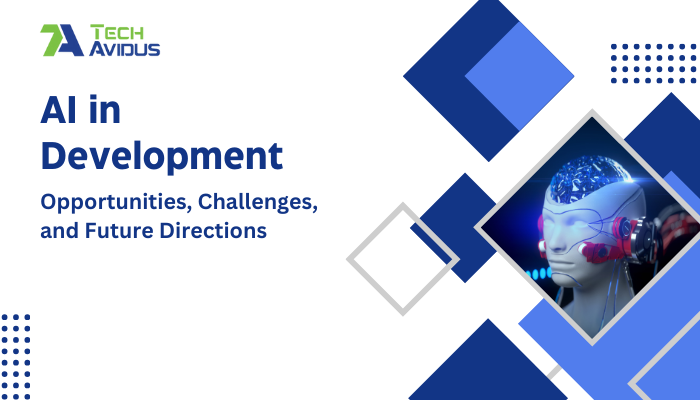
Artificial Intelligence (AI) is at the heart of technological innovation, revolutionizing industries and redefining how businesses operate. From streamlining processes to enhancing user experiences, AI in development is a critical driver for building intelligent, efficient, and impactful solutions. As AI continues to evolve, exploring the future development of AI and its potential impact is essential for businesses looking to stay ahead of the curve.
AI enables businesses to deliver highly personalized experiences by analyzing user behavior and preferences. Applications like recommendation engines, virtual assistants, and adaptive user interfaces exemplify this capability, making interactions intuitive and impactful.
Automating repetitive and time-consuming tasks is one of the most significant benefits of AI. For example, chatbots provide instant customer support, while robotic process automation (RPA) optimizes back-end operations, reducing human intervention and errors.
AI-powered predictive analytics allows businesses to anticipate trends, customer behavior, and potential challenges. This capability is widely adopted in healthcare, retail, and finance, enabling data-driven decision-making and strategic planning.
Integrating AI with IoT, blockchain, and augmented reality creates endless possibilities. From smart homes to AI-assisted manufacturing, this convergence is shaping the future directions of AI, leading to more intelligent, more efficient applications.
AI systems rely on large datasets to function effectively. However, ensuring the availability of high-quality, unbiased, and compliant data remains a critical challenge.
AI implementation often demands substantial investments in tools, infrastructure, and expertise. While the long-term benefits outweigh the costs, the initial expense can be a barrier for smaller businesses.
Issues like algorithmic bias, lack of transparency, and privacy concerns pose ethical challenges. Organizations must adopt responsible AI practices to build trust among users.
Developing AI-based applications requires a specialized skill set, and the demand for skilled professionals often outpaces supply. This makes it essential for businesses to invest in upskilling or partner with AI experts.
As AI advances, its future development will focus on enhancing efficiency, sustainability, and ethical implementation. Here are some key trends shaping the future directions of AI:
Transparency and fairness in AI systems will become increasingly important. Developers must prioritize ethical frameworks to build systems that gain user trust.
Industry-specific AI solutions will gain prominence, addressing challenges unique to sectors like education, real estate, and supply chain management.
AI-powered real-time analytics will enhance decision-making processes, helping businesses adapt to dynamic market conditions quickly and precisely.
Future AI systems will focus on energy efficiency and environmental sustainability, reducing the carbon footprint of AI applications.
The evolution of AI in development offers immense potential to transform businesses and industries. From opportunities in automation and personalization to challenges like data ethics and implementation costs, understanding the future development of AI is vital for staying ahead in a competitive landscape.
If you're ready to embrace AI's transformative power, TechAvidus can help bring your vision to life. With expertise in developing scalable, custom AI-powered applications, we empower businesses to innovate and lead in the ever-evolving AI landscape.
Our Top 1% Tech Talent integrates cutting-edge AI technologies to craft intelligent, scalable, and future-ready solutions.
All Rights Reserved. Copyright © 2025 | TechAvidus